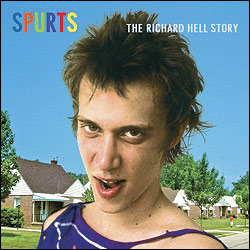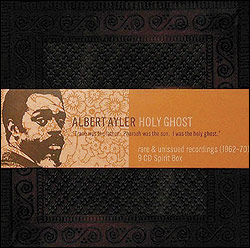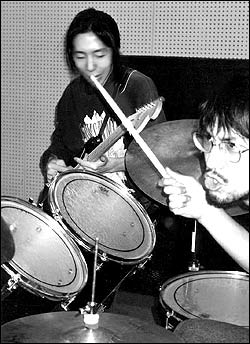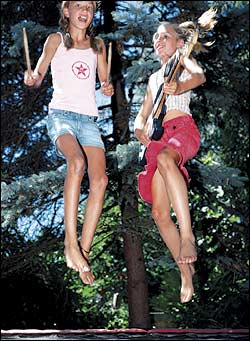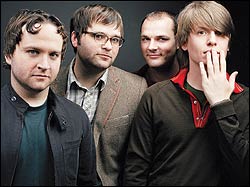In 1974, Judee Sill recorded eight songs for what was meant to be her third album. An L.A. songwriter with a colorful past (drugs, juvenile delinquency, holding up the odd liquor store), she’d written the Turtles’ minor hit “Lady-O” and made two earlier records of her own. The new one, tentatively called Dreams Come True (and subtitled “Hi – I Love You Right Heartily Here – New Songs”), was a ravishing and bizarre example of West Coast folk-rock: a little Laura Nyro mysticism, some smooth Eagles-style harmonies, a willowy earthiness in her voice that suggested Carole King, and a fascination with the impending apocalypse—as a good thing—that was all Sill. (She starts the album by imagining herself dead and resurrected, and alludes at least obliquely to the Last Judgment in every song.)
But Dreams Come True never got completed, for obscure reasons, and Sill never made another album. After a series of back injuries and not-too-successful surgeries, she died in 1979 of a drug overdose, leaving behind what might have been a suicide note or might have just been something typically cosmic.
Her recordings for Dreams Come True have finally been mixed and released on Water, with a bonus disc of other previously unavailable material like the early “Dead Time Bummer Blues,” in which the imprisoned Sill realizes that jail sucks and decides it’s all the judge’s fault. (She seems to have treated the world as if it belonged to her by right.) If it had come out at the time, Dreams‘ eschatological love songs would have turned some heads; as it is, it’s a marvelous period piece, a hidden gate to a cul-de-sac.
Around the same timeDreams Come True was recorded, the art-pop trio Slapp Happy were releasing their second album, Casablanca Moon, over in Europe. Peter Blegvad and Anthony Moore’s songs are little wonders of dry wit—”He used to wear fedoras, but now he sports a fez/There’s Kabbalistic innuendoes in everything he sez,” the title song begins—and Dagmar Krause sings them with Berlin-cabaret relish. But something’s amiss with the album: It sounds a touch overwrought, inappropriately plastic. As it turns out, Casablanca Moon was a rerecording with session musicians; the original version of the album, on which Slapp Happy’s core trio had been backed up by the German experimental collective Faust, had been rejected by their record label.
Those crisp, subtle earlier recordings have held up far better, and they’ve snuck out here and there over the years. Freshly reissued as Acnalbasac Noom (ReR USA), they’ve had a few extra tracks appended, including a ridiculous single called “Everybody’s Slimmin’,” about the weight-loss benefits of exercise. The Noom sessions proper, though, are the most elegant fruits of the cosmic German underground. Faust rein in their avant-gardist tendencies, although a few odd synthesizer flickers and jammy doodles leak through; instead, we get to hear how light and durable their rhythm section could be in the service of a real song. It’s true that Noom sounds much less like anything that could have been a radio hit than Moon does, and maybe that’s why it didn’t see release for years, but it also sounds much less like any other record ever.
Meanwhile, in New York City, the original lineup of Television was playing live at CBGB. By the time they finally made an album a few years later, the band was singer/guitarist Tom Verlaine’s baby: guitar acrobatics first, cruel attitude a distant second. In 1974, though, their other voice was the injured-cat yowl of bassist Richard Hell, who could spew a whole lot better than he could play. Spurts (Rhino) is a three- decade overview of Hell’s career, named after his song “Love Comes in Spurts”— or, rather, his songs, since it includes two different ones he wrote with that title.
Hell always had a great ear for guitar players, and Spurts includes songs he recorded with guitarists including Johnny Thunders (in the Heartbreakers), Thurston Moore (in Dim Stars), and the late, awesome Robert Quine (in the band he’s best known for, Richard Hell & the Voidoids). The album’s coda, though, leaps back to 1974 for a bloodthirsty live take on Hell’s anthem of diffidence “Blank Generation”—the first time any recording of Television’s Hell/Verlaine lineup has been legitimately released. Verlaine solos almost all the way through the song, doing his best imitation of an ancient spring mattress being tossed down a six-story Alphabet City walk-up’s staircase. It’s almost nothing like the Television of record; if this band had made a record in 1974, misfits around the world might have followed their example.
But they didn’t, of course, and only a few dozen people in 1974 got to hear Dreams Come True or Acnalbasac Noom, either. Listening to them now, they’re all evidence of an incredibly fertile moment for music, even though most people at the time would have had no way of knowing that it was fertile in those particular ways. The same thing’s probably happening today. If we’re lucky, in 31 years we’ll know what we’re missing right now.
